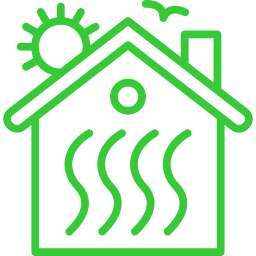
70 – 5 Star Reviews With Over 20 Years Experience Foam Insulations

HAVE YOU CLAIMED YOUR
SEAI GRANT FOR
INSULATING YOUR HOME?
grants available for up to €1,500
save up to 35% on your home heating bills
save up to 35% on your home heating bills
Claim Your SEAI Grant Today

INSULATION'S
Insulation services that address any repairs you may need.

CAVITY WALL'S
Protect your home against
the elements with cavity wall insulation.

NEW BUILD'S
We are your professional
specialist for new build's in Ireland.

FREE SURVEY'S
We offer free and fair surveys for all you insulation need's.

INSULATIONS
Insulation services that address any repairs you may need.

CAVITY WALL'S
Protect your home against
the elements with cavity wall insulation.

NEW BUILD'S
We are your professional
specialist for new build's in Ireland.

FREE SURVEY'S
We offer free and fair surveys for all you insulation need's.
Welcome to Tamburah Ltd
Your Trusted Partner for Foam Insulation & Construction Solutions
At Tamburah Ltd, we’re more than just an insulation and construction company. We’re your partners in creating a more comfortable, energy-efficient, and sustainable living space. With years of experience and a commitment to excellence, we specialise in providing top-notch foam insulation services that transform your property into a haven of comfort and efficiency.

1. Expertise You Can Trust
Our team of skilled professionals is well-versed in the art and science of foam insulation. We tailor solutions to meet every project’s specific requirements.
2. Energy Efficiency
Save on energy bills and reduce your carbon footprint with high-quality insulation that keeps you warm in winter and cool in summer.
3. Improved Comfort
Say goodbye to drafts and noisy disturbances. Our insulation enhances comfort and provides a peaceful living environment.
4. Environmentally Friendly
We offer eco-friendly options that are safe for your home and better for the planet.
5. Cost-Effective
Our solutions save you money long-term through reduced energy costs and added property value.
Our Services
Proper insulation is the foundation of a comfortable and energy-efficient home or business. It ensures that your space stays warm during winter and cool during summer while preventing energy waste and reducing your environmental impact. Tamburah Ltd is your partner in achieving these goals

COMMERICAL
Insulation

ATTIC
INSULATION

ROOF
INSULATION

HOUSE
INSULATION

NEW
BUILD'S

CAVITY WALL INSULATION
Ready to transform your property with superior gouse construction and foam insulation? Get in touch with Tamburah Ltd today for a free consultation and quote. Our friendly team is here to answer all your questions and help you make an informed decision.
Join countless satisfied customers who have experienced the Tamburah Ltd difference. Discover a more comfortable, energy-efficient, and sustainable future for your home or business with our foam insulation solutions.
WHY CHOOSE US
Top Quality Insulation & Construction Services With Tamburah.
At Tamburah, we offer a comprehensive range of insulation & construction services for both commercial and residential clients in Ireland. With our expertise and commitment to quality, we ensure every project is completed with professionalism, efficiency, and attention to detail.
Never an Overtime Charge
Upfront Pricing
Exceptional Customer Service
Locally Owned and Operated
Licensed and Insured
TAMBURAH LTD
Reliable Insulation & Construction
Service's — Right Where You Live
At Tamburah Ltd, we don’t just install insulation — we help protect your home and lower your energy bills.
Backed by years of experience and a commitment to quality, we provide reliable insulation solutions tailored to your property’s specific needs. Whether it’s minor repairs, storm damage, or a complete insulation upgrade, our expert team delivers fast, affordable, and long-lasting results.
TAMBURAH LTD
Reliable Roofing Services
— Right Where Yo Live
At Tamburah Ltd, we don’t just install roofs — we protect homes. Backed by years of experience and a passion for quality, we provide reliable roofing solutions tailored to your local area’s needs. Whether
it's a leak, storm damage, or full roof replacement, our expert team
delivers fast, affordable, and long-lasting results.
Offaly
Dublin
Meath
Limerick
Clare
Tipperary
Galway
Waterford
Wexford
Louth
Carlow
Laois
Kildare
Longford
Monaghan
Wicklow
Westmeath
Kerry
Limerick
Tipperary
Our Recent Review
HOW MUCH DOES
INSULATION SERVICES COST IN IRELAND?
At Tamburah Ltd, we understand that insulation costs are an important consideration for homeowners. Here's what you need to know about pricing for our insulation services:
Minor Repairs: Fixing small insulation gaps, patching damaged areas, or topping up thin spots typically represents the most affordable service tier.
Storm Damage Repair: More extensive insulation repairs caused by storm damage, such as water intrusion or wind displacement, may require a moderate investment.
Complete Replacements: For properties with severely degraded or outdated insulation, a full insulation replacement may be necessary to restore energy efficiency and comfort.
Price Ranges :
Minor fixes: From €100+
Significant repairs: €500-€2000+
Complete insulation replacements: €1000s
We provide transparent quotes and recommend proactive maintenance to help Irish homeowners avoid costly insulation's.
Frequently Asked Questions
What types of foam insulation does Tamburah Ltd offer?
Tamburah Ltd specialises in various foam insulation services including spray foam insulation, attic insulation, crawl space insulation, and wall insulation. Our solutions are tailored to both residential and commercial properties, ensuring top-tier energy efficiency and comfort.
How does foam insulation improve energy efficiency?
Foam insulation creates a tight seal that reduces air leakage, keeping your property warm in winter and cool in summer. This thermal barrier significantly cuts down on energy consumption, leading to lower heating bills and a reduced carbon footprint.
Is foam insulation environmentally friendly?
Absolutely. At Tamburah Ltd, we prioritise the planet by using eco-friendly foam insulation options. These materials are safe for your home and the environment, helping to reduce CO2 emissions and promote sustainability.
Can foam insulation help in noise reduction?
Yes, one of the benefits of foam insulation is its sound-dampening qualities. It helps to minimise external noise, creating a more peaceful and quiet indoor environment.
What are the long-term benefits of installing foam insulation?
Installing foam insulation from Tamburah Ltd offers several long-term benefits including consistent indoor temperatures, reduced energy costs, enhanced property value, and a more comfortable living or working environment.
Does Tamburah Ltd provide insulation solutions for commercial properties?
Yes, we offer comprehensive insulation services for commercial spaces. Our solutions aim to improve workspace environments and reduce operational energy expenses.
How can I get a quote for foam insulation services from Tamburah Ltd?
Getting a quote is easy! Contact us at 087 434 5347 or visit our website to fill out a quick inquiry form. We’ll provide you with a free, no-obligation quote tailored to your specific insulation needs.
What areas do you cover for spray foam insulation?
We provide professional spray foam insulation services in the following counties across Ireland:
Limerick Spray Foam Insulation
Waterford Spray Foam Insulation
Kilkenny Spray Foam Insulation
Tipperary Spray Foam Insulation
FREE NO-OBLIGATION QUOTE
Enter Your Details Below And We Will Get Right Back To You

We,re Partners in Creating
a more comfort, energy-
efficent, and sustainable
living space.
Our Services
Navigation
Website Designed by ALLFLOW
